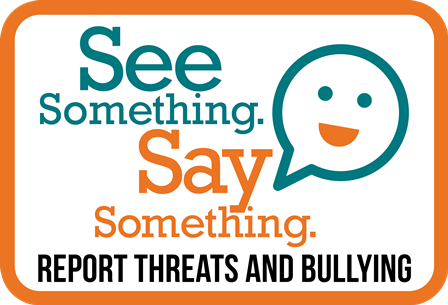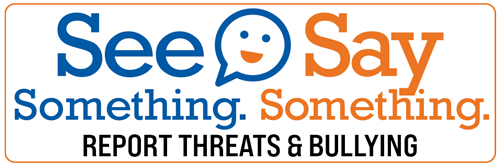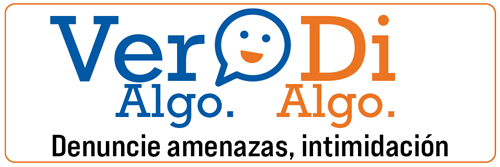GCS Joins Ranks of Cyber Security Awareness Month Champions
Greenville County Schools announces its commitment to National Cybersecurity Awareness Month (NCSAM), held annually in October, by signing up as a Champion and joining a growing global effort to promote the awareness of online safety and privacy. NCSAM is a collaborative effort among businesses, government agencies, colleges and universities, associations, nonprofit organizations and individuals committed to this year’s NCSAM theme of ‘Own IT. Secure IT. Protect IT.’ which encourages everyone to #BeCyberSmart to ensure everyone has the resources they need to stay safe and secure online while increasing the resilience of the nation against cyber threats.
“Once again, Greenville County Schools (GCS) is participating as a Champion of National Cyber Security Awareness Month (NCSAM). GCS joins the ranks of Cyber Security Awareness Month Champions with its innovative Digital Citizenship and Cyber Safety Awareness Programs. Being a Champion of Cyber Security Awareness Month entails having a demonstrable and active program of awareness and education training,” said Spencer Benham, Certified Security Specialist for Greenville County Schools.
“Typically, over 200 separate program presentations occur annually for students, parents, staff, and the community. This year GCS has increased its focus on security standards in conjunction with online instruction. GCS is continuing the long-standing tradition of innovative digital literacy and empowering students to become thoughtful digital citizens,” Benham added.
This year, the Cybersecurity Awareness Month’s main weekly focus areas will revolve around:
- Understanding and following general security hygiene for connected devices and home networks
- The importance of connected devices security for remote workers
- How connected devices play a pivotal role in the future of healthcare; and
- The overall future of connected devices for consumers, professionals and the public domain
If everyone does their part – implementing stronger security practices, raising community awareness, educating vulnerable audiences or training employees – our interconnected world will be safer and more resilient for everyone.
#BeCyberSmart: Tips to Own IT. Secure IT. Protect IT.
- Double your login protection. Enable multi-factor authentication (MFA) to ensure that the only person who has access to your account is you. Use it for email, banking, social media and any other service that requires logging in.
- Shake up your passphrase protocol. Consider using the longest password or passphrase permissible. Get creative and customize your standard passphrase for different sites, which can prevent cybercriminals from gaining access to these accounts and protect you in the event of a breach. Use password managers to generate and remember different, complex passphrase for each of your accounts.
- If you connect, you must protect. Whether it’s your computer, smartphone, game device or other network devices, the best defense against viruses and malware is to update to the latest security software, web browser and operating systems. Sign up for automatic updates, if you can, and protect your devices with antivirus software.
- Play hard to get with strangers. Cybercriminals use phishing tactics, hoping to fool their victims. If you’re unsure who an email or message is from ̶ even if the details appear accurate ̶ or if the email looks “phishy,” do not respond and do not click on any links or attachments found in that email. When available use the “junk” or “block” option to no longer receive messages from a particular sender.
- Never click and tell. Limit what information you post on social media ̶ from personal addresses to where you like to grab coffee. What many people don’t realize is that these seemingly random details are all cybercriminals need to know to target you, your loved ones and your physical belongings ̶ online and in the physical world. Keep Social Security numbers, account numbers and passphrases private, as well as specific information about yourself, such as your full name, address, birthday and even vacation plans. Disable location services that allow anyone to see where you are – and where you aren’t – at any given time.
- Keep tabs on your apps. Most connected appliances, toys and devices are supported by a mobile application. Your mobile device could be filled with suspicious apps running in the background or using default permissions you never realized you approved —gathering your personal information without your knowledge while also putting your identity and privacy at risk. Check your app permissions and use the “rule of least privilege” to delete what you don’t need or no longer use. Learn to just say “no” to privilege requests that don’t make sense. Only download apps from trusted vendors and sources.
- Stay protected while connected. Before you connect to any public Wi-Fi be certain to confirm the name of the network and exact login procedures with appropriate staff to ensure that the network is legitimate. If you do use an unsecured public access point, practice good cyber hygiene by avoiding sensitive activities (e.g., banking) that require passphrases or credit card numbers. Your personal hotspot is a safer alternative to free Wi-Fi. Only use sites that begin with “https://” when shopping or banking online.
- Learn more about cybersecurity at home, work, school, and in the community: https://staysafeonline.org/get-involved/at-school/
About Cybersecurity Awareness Month
Cybersecurity Awareness Month is designed to engage and educate public- and private-sector partners through events and initiatives with the goal of raising awareness about cybersecurity to increase the resiliency of the nation in the event of a cyber incident. Since the Presidential proclamation establishing Cybersecurity Awareness Month in 2004, the initiative has been formally recognized by Congress, federal, state and local governments and leaders from industry and academia. This united effort is necessary to maintain a cyberspace that is safer and more resilient and remains a source of tremendous opportunity and growth for years to come. For more information, visit staysafeonline.org/cybersecurity-awareness-month/


